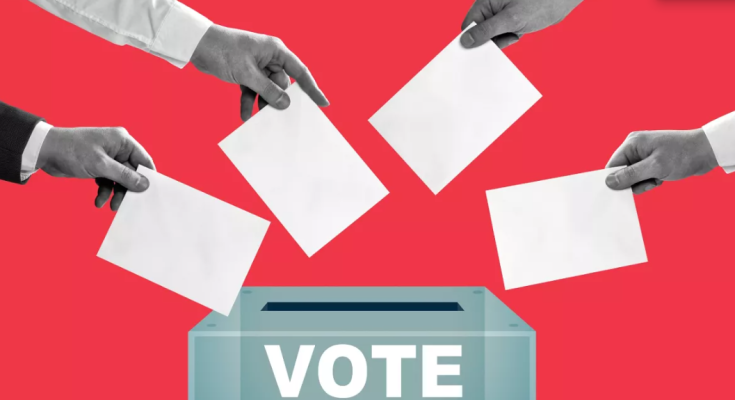Key Elections Around the World: Shifting Political Landscapes and Trends
Introduction:
Elections serve as pivotal moments in the democratic process, offering citizens the opportunity to exercise their right to choose their representatives and shape the future direction of their countries. Across the globe, key elections have significant implications not only for the nations holding them but also for the broader geopolitical landscape. From the United States to India, from Brazil to Germany, elections in major democracies provide insights into shifting political trends, emerging leaders, and evolving ideologies. In this article, we explore some of the key elections held around the world in recent years, examining the factors driving political change and the implications for global governance.
United States: The 2020 Presidential Election
The 2020 United States presidential election was one of the most closely watched and consequential elections in recent history. Incumbent President Donald Trump, representing the Republican Party, faced off against former Vice President Joe Biden, the Democratic Party nominee. Against the backdrop of a global pandemic, economic uncertainty, and heightened social tensions, the election highlighted deep divisions within American society and the polarized nature of its politics.
Joe Biden emerged victorious in the election, defeating Donald Trump and becoming the 46th President of the United States. His victory marked a significant shift in American politics, with the Democratic Party regaining control of the White House after four years of Republican rule. Biden’s presidency has been characterized by efforts to unify a deeply divided nation, tackle the COVID-19 pandemic, address economic inequality, and combat climate change.
The 2020 election also saw record voter turnout, reflecting widespread engagement and mobilization across the country. Voter turnout reached its highest level in over a century, driven by increased participation among young people, minority communities, and marginalized groups. The election underscored the importance of civic engagement and the power of the electorate to shape the course of democracy.
India: The 2019 Indian General Election
India, the world’s largest democracy, held its general election in 2019, with over 900 million eligible voters casting their ballots to elect members of the Lok Sabha, the lower house of parliament. The election saw Prime Minister Narendra Modi and his Bharatiya Janata Party (BJP) seeking re-election against a diverse array of opposition parties.
The BJP emerged victorious in the election, securing a landslide victory and winning a majority of seats in the Lok Sabha. Narendra Modi was re-elected as Prime Minister, solidifying his position as one of India’s most dominant political figures in recent history. The BJP’s victory was attributed to Modi’s strong leadership, nationalist rhetoric, and promises of economic development and security.
The 2019 election also highlighted the growing influence of social media and digital campaigning in Indian politics. Political parties leveraged social media platforms such as Facebook, Twitter, and WhatsApp to reach voters, disseminate messaging, and mobilize support. However, concerns were raised about the spread of misinformation, hate speech, and political polarization on social media, prompting calls for greater regulation and transparency.
Brazil: The 2018 Brazilian Presidential Election
In 2018, Brazil held a highly contentious presidential election that marked a significant turning point in the country’s political landscape. The election followed years of political turmoil, economic instability, and widespread corruption scandals that had eroded public trust in the government and institutions.
The election saw the rise of far-right populist candidate Jair Bolsonaro, a former army captain and congressman, who ran on a platform of law and order, anti-corruption, and conservative values. Bolsonaro’s unapologetically nationalist and authoritarian rhetoric appealed to many Brazilians disillusioned with the status quo, while alarming critics who viewed him as a threat to democracy and human rights.
Jair Bolsonaro emerged victorious in the election, defeating his opponent Fernando Haddad of the left-wing Workers’ Party (PT) and assuming office as Brazil’s 38th President. His presidency has been marked by controversial policies, including deregulation, environmental rollbacks, and a crackdown on crime and dissent. Bolsonaro’s leadership style and policy agenda have polarized Brazilian society, sparking protests and criticism from both domestic and international observers.
Germany: The 2021 German Federal Election
In 2021, Germany held its federal election, marking the end of Chancellor Angela Merkel’s 16-year tenure in office. Merkel, one of the world’s longest-serving leaders, announced that she would not seek re-election, paving the way for a new era in German politics.
The election saw the center-left Social Democratic Party (SPD), led by Olaf Scholz, narrowly defeating the center-right Christian Democratic Union (CDU), led by Armin Laschet. The SPD emerged as the largest party in the Bundestag, Germany’s federal parliament, securing a narrow plurality of seats. The election results signaled a shift in German politics, with the SPD poised to lead the next government coalition.
The 2021 election also saw the rise of the Green Party, which made significant gains and emerged as a key player in coalition negotiations. The Greens’ success reflected growing concerns about climate change, environmental sustainability,
and social justice among German voters, particularly younger generations.
Conclusion:
Key elections around the world provide valuable insights into shifting political landscapes, emerging trends, and evolving ideologies. From the United States to India, from Brazil to Germany, elections shape the course of democracy and governance, influencing policies, institutions, and international relations.
These elections underscore the importance of civic engagement, democratic participation, and political accountability in shaping the future of nations. They also highlight the challenges and opportunities facing democracies in an increasingly interconnected and complex world, from addressing social and economic inequalities to combating climate change and protecting human rights.
As countries navigate the aftermath of key elections and chart a course for the future, the lessons learned and the choices made will have far-reaching implications for societies, economies, and the global community. By embracing democratic values, fostering inclusive dialogue, and working together to address shared challenges, nations can build a more resilient, equitable, and sustainable future for generations to come.
For more information visit: elmzaango.com
For more information visit: newsburing.com
